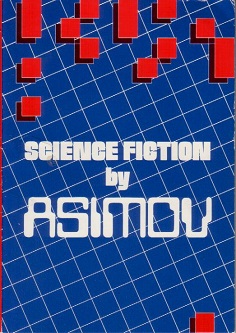
Science Fiction by Asimov is a collection of six short stories and one poem by American author Isaac Asimov. Published by Davis Publications in 1986, it was given away free to subscribers of Asimov's SF Magazine .

Science Fiction by Asimov is a collection of six short stories and one poem by American author Isaac Asimov. Published by Davis Publications in 1986, it was given away free to subscribers of Asimov's SF Magazine .
It is the only collection of Asimov's stories to include "Potential", a Multivac story first published in Isaac Asimov's Science Fiction Magazine in the February 1983 issue. [1] The story also appeared in The 1984 Annual World's Best SF and Tales from Isaac Asimov's Science Fiction Magazine (1986).